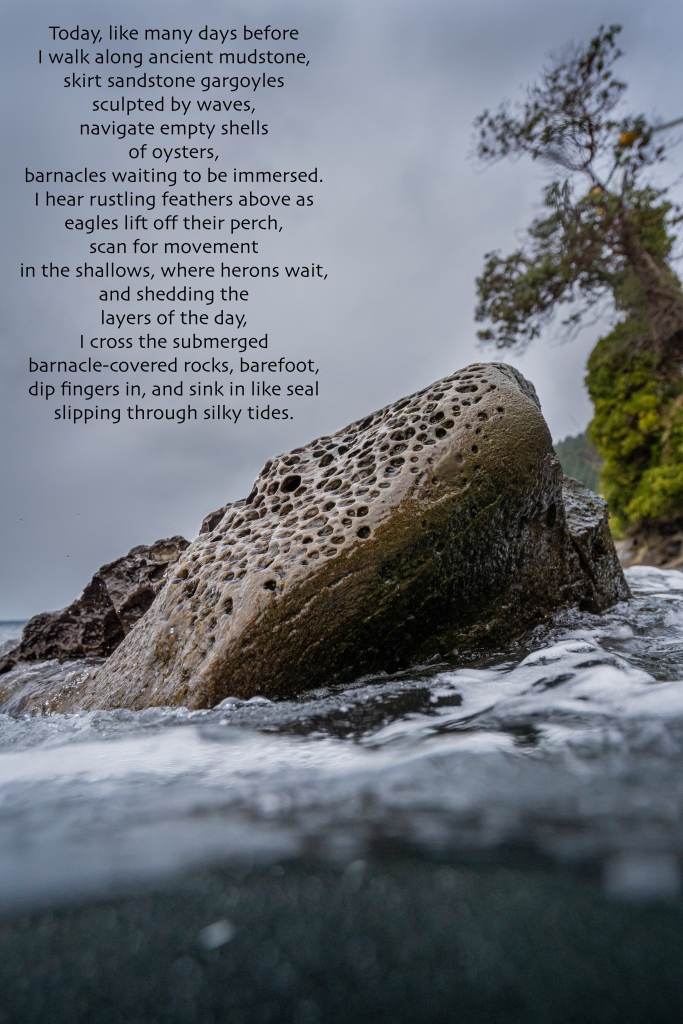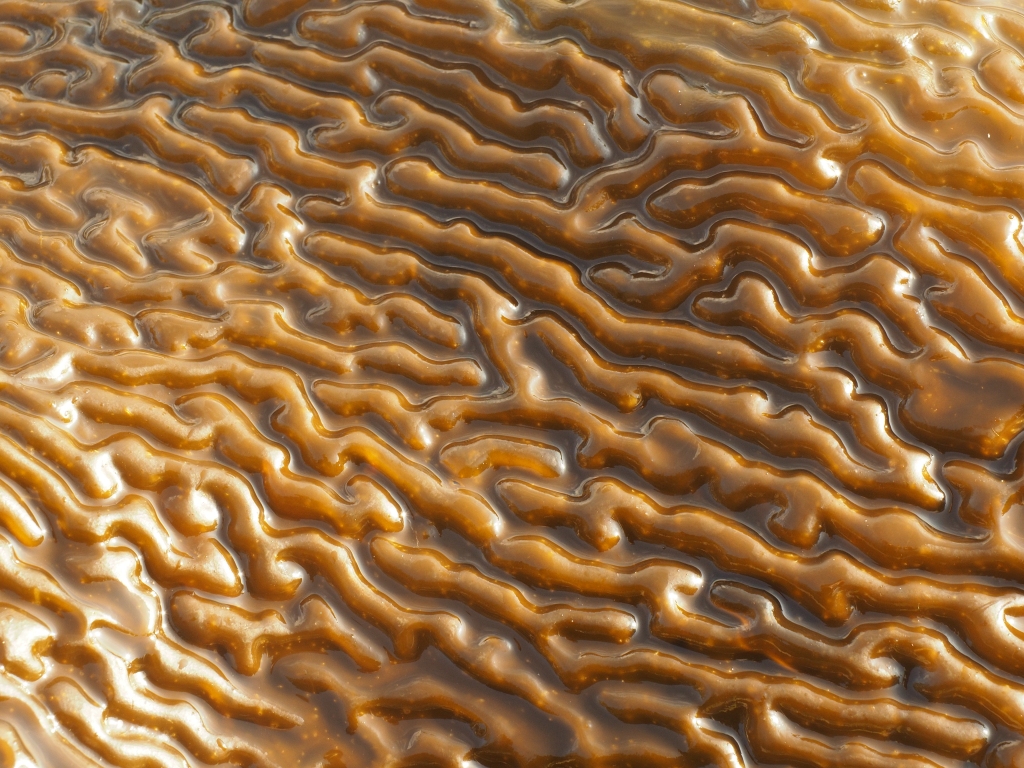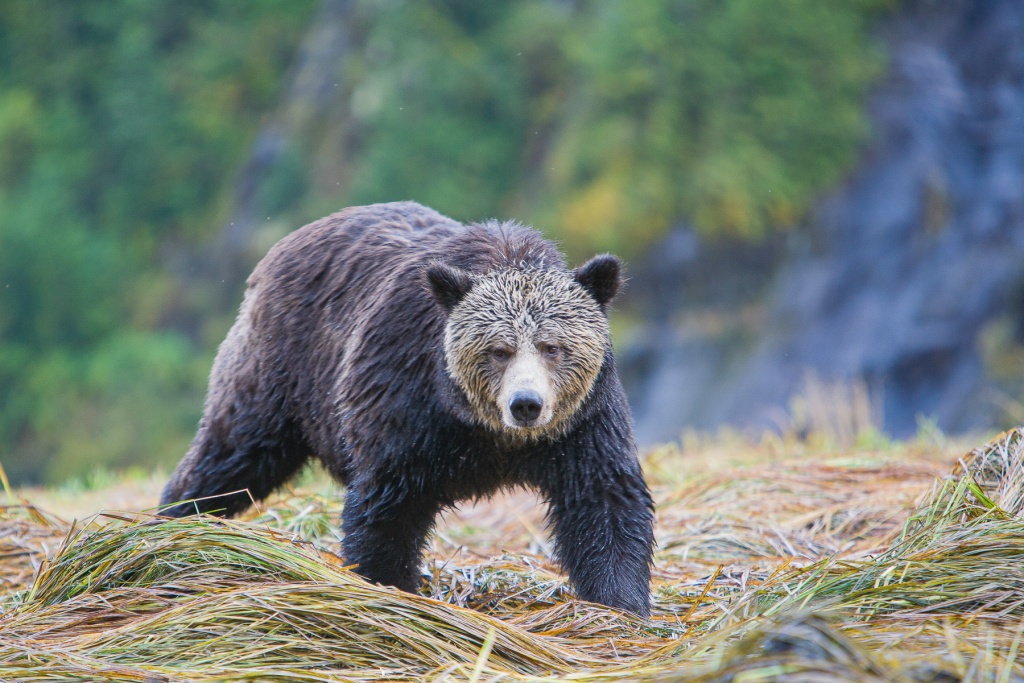
We recognize that this project, though virtual this year, speaks to connections with places that lie in the unceded traditional territories of many Coast Salish nations and beyond. This includes the W̱SÁNEĆ and Hul’q’umi’num (Quw’utsun) around Salt Spring Island, where the project is based. These nations have and continue to have a deep, strong connection to the waters we are honouring through this project. This connection is told through place names, stories, cultural practices and more. Above and beyond a simple acknowledgement, we would like to foster a commitment to putting this recognition into meaningful action by aligning our stewardship actions with movements for indigenous cultural revitalization, land rights and title, and stewardship models. This includes a commitment to learning and openness to feedback on this process. If you’d like to make a personal commitment to this work, here is a great local project to learn about and support:
The Xwaaqw’um Project supports continued Hul’q’umi’num use of the land and sea at Xwaaqw’um (Burgoyne Bay) on Salt Spring Island BC, including upholding responsibilities and connections to the land, the ancestors, to each other and to all animal and plant relations. The core goal is to have everything we do feed back into providing outdoor opportunities for youth to re-engage with culture, language and ways of life that have been forcibly removed from Indigenous communities. Facebook: https://www.facebook.com/xwaaqwum/ Website: https://www.xwaaqwum.com
From free-diving to quiet oceanside wanderings, from citizen science to outdoor education to gathering of cultural foods – our diverse ways of connecting to the ocean, deepening our learning, and enacting our role as ocean stewards can take so many forms. What forms do these take for you?
We hope you enjoy this collection of offerings from ocean lovers across the country- and don’t forget to check out the beautiful work in our fundraising gallery as well!
And now, presenting our virtual festival!

Contributor: J.A. Kraulis
Images of the Pacific Northwest by one of Canada’s renowned landscape photographers
Prints are available through our fundraising gallery.
Contributor: Future Ecologies
Kelp Worlds is a 3-part podcast series on kelp forest ecosystems. Immerse yourself and learn about the wonders of forest ecology, otters, urchins, abalone, and First Nations & biologists working to bring balance back to these awesome ecosystems.
Click here to start listening!

Contributor: Ananda Korchynski/ No Freighter Anchorages
The international freighters anchored in the Southern Gulf Islands are hurting our local ocean habitat.
From anchors that scour and destroy the marine habitat on the ocean floor, to the noise and light pollution, the list of negative effects for wildlife and residents goes on and on.
We hope this educational video inspires you to take action and send your letter today.
A recent report out of Salt Spring shows that the cargo ships produce 10 tons of greenhouse gases per day. This idling is unnecessary and could be avoided by better management and logistics at port.
It doesn’t have to be this way. A grassroots organization has taken up the cause of making change, but they need your help.
It only takes a couple minutes to send a letter to the three ministers in charge of the problem from the website.
Please alert 1-3 people in other parts of BC and Canada who care about the Gulf Islands to join sending a letter. Widening the campaign to get support from elsewhere is an important indicator for the government that this problem cannot be contained and hidden from public opinion.
Contributor: Joey Maslen
I Call the Ocean Back to Life
I call the oceans back to life
Not just the oceans
But the lakes and rivers that belong to them
I call the fish back into abundance
Not to feed anyone, though by happenstance they will
Nor to balance anything, or to reassume any keystone role
(Though by coincidence they will)
But simply to swim again
To copulate and play
To dive through deep pools
Among silver companions
To heed the rush of seasons
Surging bodies against the flow
Racing beside companions
Flashing through sunlit rivers
Journeying to that place, familiar as childhood
To see the old uncanny rocks
Swirl of eddies and waterfalls
To inhale strange scents and pheromones
As new faces call out
Chance encounters beneath the moon
Beating ever closer, fresh water through open gills
Before surrendering into the current
Wasted and tired but free
The long-sought-for goal now achieved
As the river takes them home
And the ocean swims back to life
The Ships Go Quiet
The ships go quiet
Not forever, not even for a stretch of time
Not in protest or rebellion
But only for a brief pause—
Just long enough to hear a murmur on the waves
For orcas to awaken in their underwater bowers
To hear a hush they’ve never heard before
The ancient womb and night of silence
And in this starry sky
Suddenly they hear voices
Senses reawaken that they didn’t know they had
Words they’ve been withholding
Now they are able to speak
Deep, sonorous words travelling the blue waves
Full-bodied words, powerful music
Emanating through underwater canyons
I hear them, I feel them in my feet
As schools of herring twitch back to life
Eagles cry out against the wind
Cedar roots twist and heave in the earth
Humpbacks gasp for a reviving breath
Herons flap into the tide pools
Dolphins return into the harbour
And lichen exhale on the twigs of spruce
The long passing vessel
The immense mass of heavy steel
Rests for a silent moment
Anchored to its moorings
As the people rushing about
Travelling far distances on the slightest reasons
Stay on their islands to sit and rest
To look around, to see who else is there
And I rest with them
Reaching over for an embrace
Your voice now finally reaching my ears
The ships go quiet
And the oceans sing
Contributor: Natalie Hobbs
My name is Natalie Hobbs. I moved from Vancouver, BC to St. John’s, NL over 7 years ago. Since I have been in St. John’s I have become enamoured with the Atlantic Ocean and all of the creatures in it. I honour nature by going on hikes and taking moments by the ocean. Every summer I spend my free time looking for whales in the sea and then swimming. I love to spend my free time in bodies of water. This year I swam once a month in a body of water and I only missed one month. I swim in ponds, rivers and the ocean. I wanted to honour the ocean and all of its creatures with this dance video.
Contributor: Christoph Rohner
This article appeared in a recent edition of the Driftwood newspaper.
There is an important lesson from Australia for the Southern Gulf Islands in dealing with the economic and environmental risks of cargo ship anchorages. The grounding of a cargo ship at a popular beach near Newcastle, Australia, was a crisis that triggered major innovations in port efficiency and marine traffic management that could also be applied here.
“It can take a crisis for an innovative approach to gain traction, but only if lessons are learnt,”says Professor Heaver of the UBC Sauder School of Business in a recent article addressing this topic, published in Lloyd’s List, a world leading journal for the shipping industry.
Existing conditions are not always satisfactory. He points out that “an increase in the number of ships at anchor at ports is often a sign that problems exist in a maritime supply chain, much like a rash is evidence of measles.”
These problems at port have become a major issue in the Southern Gulf Islands in recent years. Intrusions of anchoring bulk carriers from port have reached maximum heights this winter and spring, and have caused widespread concerns about negative impacts on the protected environment of this unique group of islands and their residents.
COVID-19 is challenging us all to rethink existing approaches and improve the reliability and safety in supply chains. Heaver describes how another crisis, the grounding of the ship Pasha Bulker at a popular beach close to the port of Newcastle near Sydney in Australia on June 8, 2007, had exactly this effect. In the fallout of the accident, the Australian Transport Safety Bureau launched an investigation. One of the conclusions of the May 2008 report….Click here to continue reading article on the Driftwood Website!
The writer has a background in environmental sciences and is a resident of Salt Spring Island.
Contributor: Amy Kiara Ruth
A moving prayer, holding awareness of orcas in heart and mind. In recognition of World Oceans Day (June 8th) as part of the Ocean Defenders festival.
With thanks to Lisa Prentice for videorecording.
Contributor: Paddi McGrath

Paddi McGrath is a Vancouver mixed media artist who loves painting the forests and skies of our beautiful coastal habitat. This is her first venture underwater to help the Ocean Defenders bring attention to the fragile and endangered environment of the Salish Sea. She hopes you enjoy her artwork and are inspired to support the work of our donor organization.
Artwork: Suk-kegh
Mixed media, rice paper, ink, acrylic paint, acrylic medium on wooden panel 12”x16”
Prints of this artwork are available through our fundraising gallery.
Contributor: Theo Kraulis
Piano by Tayo ~
✨ Make sure your sound is on !
————
—————-
Contributor: Anna Kraulis
Rock movement study no. 1, Horizon Heron
Dedicated to the ancient and to the present
————
—————-
Filmed in Tsawout territory 2019
Contributor: Hannah Carpendale
Mapping My Ocean Connection – an artistic mind map

When thinking through what to contribute to this project, I found myself pulled in many directions. I wanted to somehow articulate and integrate my personal practices, my love and history of connection with the ocean, new learnings and curiosity, and various issues and actions for ocean conservation and stewardship. Then I remembered mind mapping, a practice I like to use to explore my ideas in many areas of my life. In this case, it helps me to reflect on how different aspects of my connection feed into others – including how our personal connection can feed into actions for change. This is by no means complete, and the connections are much more entangled than this, but it can be helpful no matter how deep you’re able to go.
I hope it provides some inspiration for exploring and growing your own ocean connection!
A note about the Salish Sea: The Salish Sea is a unique coastal region consisting of a network of waterways sheltered from the open Pacific Ocean. As the cold, nutrient-rich waters of the Pacific Northwest funnel through this intricate series of narrow channels, the resulting patterns of upwelling offer up nutrients to support an incredible diversity of species. The unique terrestrial ecosystems that meet the marine along a huge stretch of convoluted coastline make this place one of global ecological significance.
















